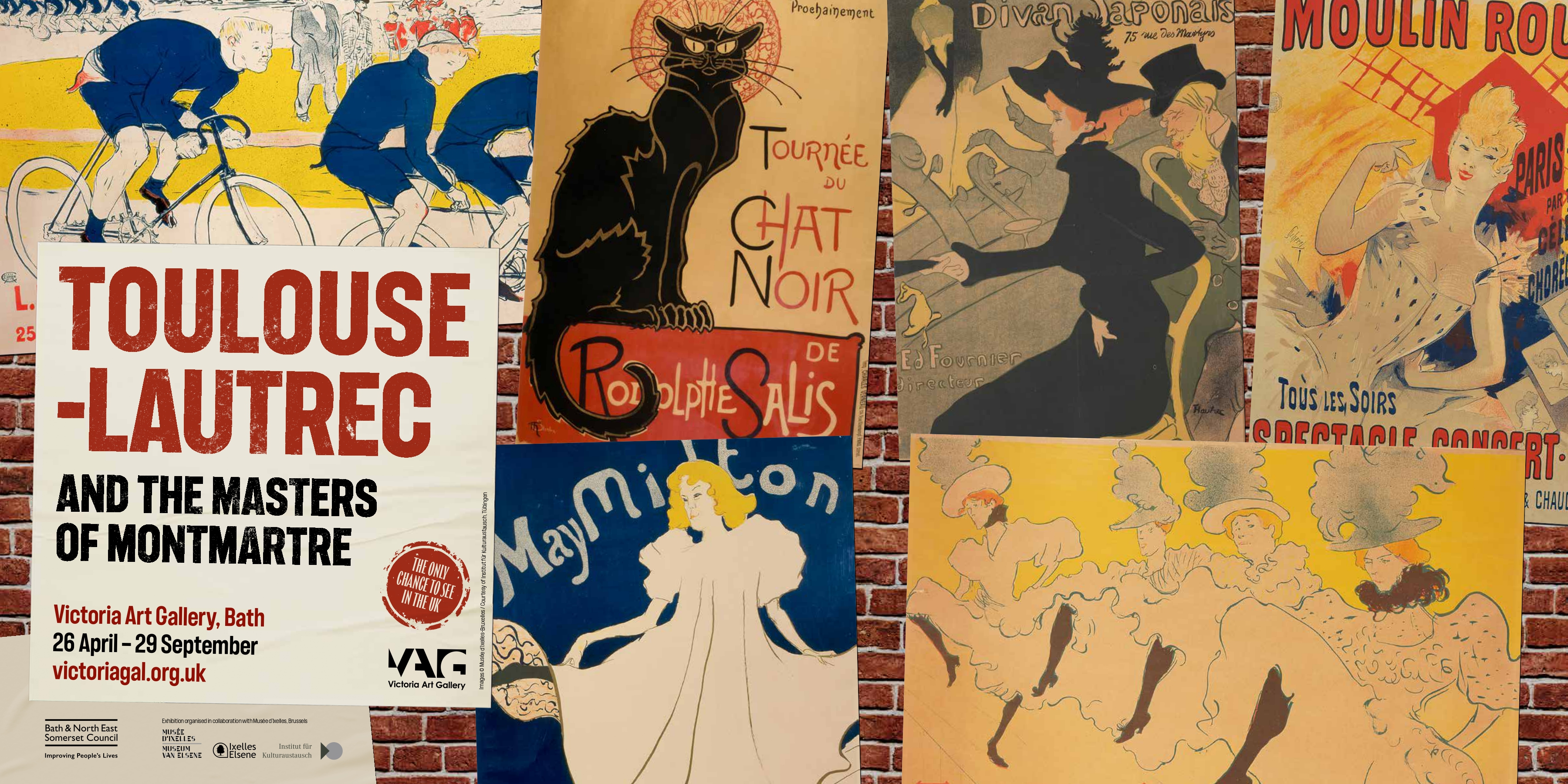
From troupes of cancan dancers to the legendary 'Chat Noir,' and the unforgettable characters of the Moulin Rouge, Toulouse-Lautrec & the Masters of Montmartre will feature 100 original posters from 1890s bohemian Paris in a fresh look at this era of artistic fervour and social revolution. This is the only chance to see Lautrec’s complete collection of posters exhibited together in the UK before it moves to its permanent home at the Musée d’Ixelles in Belgium, following a five year international tour.
With bright colours and bold lines, Lautrec's striking artwork captured the essence of turn-of-the-century Parisian nightlife. More than 30 pieces from his esteemed career, including his first poster of the Moulin Rouge, and the cancan dancers of La Troupe de Mademoiselle Eglantine will be shown alongside works by other celebrated artists of the day. Steinlen’s iconic Tournée du Chat Noir, an advert for Ruinart champagne by Alphonse Mucha, and theatre posters by Jules Cheret will feature with eye-catching work by other masters of Belle Époque Paris.
The exhibition will explore the contrast of the vibrancy of these artworks with the backdrop of a city recovering from war and rebellion. Following the end of the Franco-Prussian War in 1871 Paris was a city in ruins; the posters by Lautrec and his contemporaries offered alluring promises of entertainment and consumerism and brought much needed colour and hope to the city. This setting will be explored with an audio tour and information about all of the exhibits on the Bloomberg Connects app.
The Post-Impressionist French painter, printmaker, caricaturist and illustrator Henri de Toulouse-Lautrec (1864-1901) moved in the ‘celebrity’ circles of 19th-century bohemian Paris. Hugely influenced by the flamboyant lifestyle of the time, his work was known for its provocative nature, highlighting Paris’s colourful nightlife, stripping away the glamour to bring the Parisian underworld to life.
Beginning in Montmartre in the 1880s, the exhibition examines Toulouse-Lautrec’s work as a printmaker and shines a light on the celebrated stars of the stage, and the styles and fashions of the time. His work brings the famous characters of Montmartre to life, and features Paris’s most popular cafés, cabarets, and entertainers including stage stars Yvette Guilbert, Jane Avril and Loïe Fuller.
Beginning in Montmartre in the 1880s, the exhibition examines Toulouse-Lautrec’s work as a printmaker and shines a light on the celebrated stars of the stage, and the styles and fashions of the time. His work brings the famous characters of Montmartre to life, and features Paris’s most popular cafés, cabarets, and entertainers including stage stars Yvette Guilbert, Jane Avril and Loïe Fuller.
Creative family trails and activities will bring the artwork to life for younger art lovers, and there will be hands-on craft activities during May half-term and the school summer holidays. For students and adults, a French language activity trail will add to the Parisienne experience, and lunchtime tours every Thursday from 1.30-2pm (free with exhibition ticket) will offer an in depth look at the artworks.
On Friday 17 May, the Gallery will stay open from 6pm to 9pm for Bath Festival’s Party in the City, offering live music and free entry for the night.
The Victoria Art Gallery shop will offer a range of exhibition souvenirs including keyrings, magnets, postcards and posters featuring key images from the show, including Tournée du Chat Noir and Jane Avril. There will also be Fin de Siecle-inspired jewellery, an Ambassadeurs-style red scarf, and Toulouse-Lautrec socks.
Toulouse-Lautrec and the Masters of Montmartre opens on 26 April and runs until 29 September 2024. Victoria Art Gallery is open Tuesday – Sunday from 10.30am – 5pm.
Tickets for the exhibition are £10 for adults, £3.50 for children, and FREE for residents of Bath & North East Somerset with a Discovery Card. Booking online is recommended.
Toulouse-Lautrec and the Masters of Montmartre comes to Victoria Art Gallery from Musée d’Ixelles-Bruxelles / Courtesy of Institut für Kulturaustausch, Tübingen






